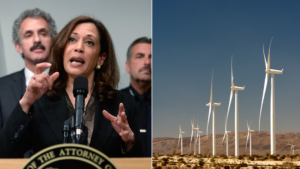US investigates 2.4m Tesla self-driving vehicles after reported collisions | Tesla
The US government’s road safety agency has opened an investigation into 2.4m Tesla vehicles with the automaker’s Full Self-Driving software after four reported collisions, including a fatal crash.
The National Highway Traffic Safety Administration (NHTSA) on Friday said it was opening the preliminary evaluation after four reports of crashes where Full Self-Driving was engaged during reduced roadway visibility like sun glare, fog or airborne dust.
In one crash “the Tesla vehicle fatally struck a pedestrian. One additional crash in these conditions involved a reported injury,” NHTSA said.
The investigation covers 2016-2024 Model S and X vehicles with the optional system as well as 2017-2024 Model 3, 2020-2024 Model Y, and 2023-2024 Cybertruck vehicles.
The preliminary evaluation is the first step before the agency could seek to demand a recall of the vehicles if it believes they pose an unreasonable risk to safety.
Tesla says on its website its “Full Self-Driving” software in on-road vehicles requires active driver supervision and does not make vehicles autonomous.
NHTSA is reviewing the ability of FSD’s engineering controls to “detect and respond appropriately to reduced roadway visibility conditions.”
The agency is asking if other similar FSD crashes have occurred in reduced roadway visibility conditions, and if Tesla has updated or modified the FSD system in a way that may affect it in reduced roadway visibility conditions.
NHTSA said the “review will assess the timing, purpose, and capabilities of any such updates, as well as Tesla’s assessment of their safety impact”, the agency said.
The Tesla CEO, Elon Musk, is seeking to shift Tesla’s focus to self-driving technology and robotaxis amid competition and weak demand in its auto business.
The company did not immediately respond to requests for comment. Its shares were down 0.5% before the bell.
Last week, Musk unveiled Tesla’s two-seater, two-door “Cybercab” robotaxi concept without a steering wheel and pedals that would use cameras and artificial intelligence to help navigate roads. Tesla would need NHTSA approval to deploy a vehicle without human controls.
Tesla’s FSD technology has been in development for years and aims for high automation, where its vehicle can handle most driving tasks without human intervention.
But it has faced legal scrutiny, with at least two fatal accidents involving the technology, including an incident in April in which a Tesla Model S car was in Full Self-Driving mode when it hit and killed a 28-year-old motorcyclist in the Seattle area.
Tesla’s “camera-only” approach to partially and fully autonomous driving systems, some industry experts have said, could cause issues in low-visibility conditions as the vehicles do not have a set of back-up sensors.
“Weather conditions can impact the camera’s ability to see things and I think the regulatory environment will certainly weigh in on this,” said Jeff Schuster, vice-president at GlobalData.
“That could be one of the major roadblocks in what I would call a near-term launch of this technology and these products.”
Tesla’s rivals that operate robotaxis rely on expensive sensors such as lidar and radar to detect driving environments.
The company had in December recalled more than 2m vehicles in the US to install new safeguards in its Autopilot advanced driver-assistance system. NHTSA is still investigating whether that recall is adequate.
#investigates #2.4m #Tesla #selfdriving #vehicles #reported #collisions #Tesla
News plays a pivotal role in our lives by keeping us informed and connected to the world. It serves as a critical source of information, offering updates on current events, politics, economics, science, and more. Through news, we gain awareness of global issues and local developments, helping us make informed decisions in our personal and professional lives. News also fosters discussion and debate, encouraging critical thinking and perspective-taking. Moreover, it promotes transparency and accountability among governments, businesses, and other institutions. In a rapidly changing world, staying updated with the news enables us to adapt to new challenges and opportunities, shaping our understanding of the complexities of society. Ultimately, news is not just about information; it empowers us to participate actively in the world around us, contributing to a more informed, engaged, and responsible global citizenry.
Health is fundamental to our well-being and quality of life, making it an essential aspect of daily existence. It encompasses physical, mental, and emotional aspects, influencing our ability to function effectively and enjoy life fully. Prioritizing health allows individuals to maintain optimal physical fitness, reducing the risk of diseases and promoting longevity. Mental health, equally crucial, affects our cognitive abilities, emotional stability, and overall happiness. Investing in preventive healthcare through exercise, balanced nutrition, and regular medical check-ups helps in early detection of potential health issues, ensuring timely intervention and treatment. Beyond individual benefits, a population’s health impacts societal productivity and economic stability. Governments and organizations worldwide emphasize public health initiatives to address pandemics, health disparities, and promote overall well-being. Ultimately, health serves as the foundation upon which we build our lives, influencing our ability to pursue goals, nurture relationships, and contribute meaningfully to society.
Money plays a crucial role in our lives as a means of financial security and freedom. It enables us to meet basic needs such as food, shelter, and healthcare, while also providing opportunities for education, travel, and personal growth. Beyond material comforts, money facilitates social connections and experiences that enrich our lives. It empowers individuals to invest in their futures, whether through savings, investments, or entrepreneurial ventures, thereby fostering economic stability and growth. However, the pursuit of wealth should also be balanced with ethical considerations, as money can influence relationships and societal dynamics. Responsible management of finances is key to achieving long-term goals and mitigating financial stress. Ultimately, while money is a tool for achieving aspirations and fulfilling desires, its true value lies in how it is utilized to improve both personal well-being and the broader community.
Earning Easy Money in 2024: Opportunities and Considerations 💸
In 2024, the landscape of earning easy money presents diverse opportunities, albeit with considerations. The digital age offers platforms for freelancing, online trading, and e-commerce, allowing individuals to leverage skills and creativity for financial gain. Cryptocurrency investments continue to allure with potential for quick profits, yet they entail high volatility and risk. Moreover, the rise of the gig economy enables flexible work arrangements through apps and websites, offering quick payouts but often without job security or benefits. Passive income streams such as rental properties and investments in stocks or bonds remain viable, but demand initial capital and ongoing management. Amid these options, caution is essential to avoid scams and unsustainable ventures promising overnight success. Ultimately, while the allure of easy money persists, informed decisions, diligence, and a long-term perspective are crucial for sustainable financial growth and security in the dynamic year ahead.




